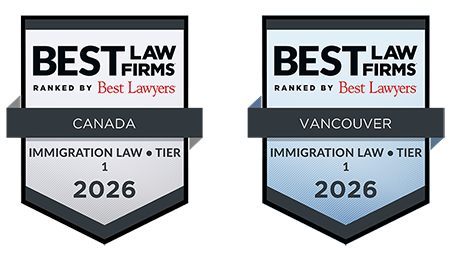Temporary entry to Canada – whether as a visitor, student, or worker – is a privilege and not a right. Whether you are coming to Canada from a visa exempt country or even if you have been granted a visa, your entry to Canada is not guaranteed and you must be prepared to explain the purpose of your entry to Canada to a border official. This reality may be particularly perplexing for someone who has already applied for and obtained a visa from overseas. The visa merely allows you to present yourself at Canada’s door – it is not assured that you will be able to enter. And do not presume that the information that you presented at the Canadian visa office abroad, will be available to the Canada Border Services Agency (CBSA) officer at the port of entry. You need to be prepared that you will be making this application essentially all over again to assure the border official that you are seeking entry to Canada for a valid purpose. Be sure to bring all the necessary supporting documentation for your proposed stay. The same is true for a student or worker.
A CBSA officer is not a tourist guide – their role is to ensure that persons seeking entry to Canada are doing so for a valid purpose. They are often severe, abrupt and intimidating in their demeanour. You should expect and be prepared for this. If you are seeking entry as a visitor, you need to explain the purpose of your visit, where you will be staying, how long you will be staying for, the funds that you have for your stay in Canada, who you will be visiting and why. You need to be prepared to explain all aspects of the reason for your visit and you should carry documentation with you to support these reasons. Think about how you will explain any questions about your proposed visit. The people that you are coming to visit should also be prepared to answer any questions and provide supporting documentation. Often visitors think that because they have their visa (or don’t require one) that they don’t need to explain anything further. This is a mistake. You need to be able to confirm that you are coming to Canada for a reasonable and valid purpose. Many people know that if allowed entry, they are permitted to remain in Canada for up to six months. But if you state at the outset to a border official that you intend to stay in Canada for six months, they will want to know how you intend to support yourself for such a long period of time without any employment. (The border official will think that you are intending to work illegally in Canada!). The absence of such financial ability may be a reason for your denied entry and you may wish to seek entry for a shorter period of time at the first instance.
Students and workers face the same circumstances in that they need to be able to reasonably explain the reason for their entry to Canada. In both instances you will need to explain where you are going to work or study, what is your employment or program or study, where will you be staying, where are your remaining family members, and how will you financially support yourself throughout your stay in Canada. Any hesitation in your ability to be able to provide reasonable answers to these questions may result in you being denied entry to Canada, even with a valid visa to Canada!
There is a presumption in Canadian immigration law that anyone coming to Canada is seeking entry to remain here permanently. That is the basis upon which border officials ask their probing questions – are you planning to live in Canada without an immigrant visa or are you intending to work or study in Canada without a work or study permit? They are lawfully permitted to make a full investigation of all of your possessions including your laptop computer, Ipad, IPhone or any other electronic device or any other personal belonging in order to determine the true purpose of your stay. During this investigative phase, there is no way for an individual to have access to an immigration lawyer or consultant unless you have made previous arrangements for such and you carry this information with you. Canada’s privacy laws prevent any government representative from having any communication with a third party, such as a lawyer, without explicit consent. If you are detained for an examination, there is no way that you can reach a representative by phone, fax or email, unless you have done so in advance. It is recommended that you make such arrangements before coming to Canada.
Seeking temporary entry to Canada as a visitor, student or worker may seem like a simple affair – especially when you may have already made an extensive application to obtain a visa to come to Canada – however the actual entry to Canada may be anything but simple. Whether your lawyer, employer or family has assisted you with a work, study or visitor permit application – the ultimate responsibility remains upon you to explain all aspects of your intended purpose in coming to Canada. You will need to have documentation to support the reason for your entry to Canada and you will also need to be able to explain why you have this information with you. It is recommended that you have arrangements in place with experienced immigration counsel such that if something goes wrong, you have the necessary authorizations to present to the CBSA officers. Being properly prepared will likely result in you having no difficulties whatsoever upon entry to Canada.





